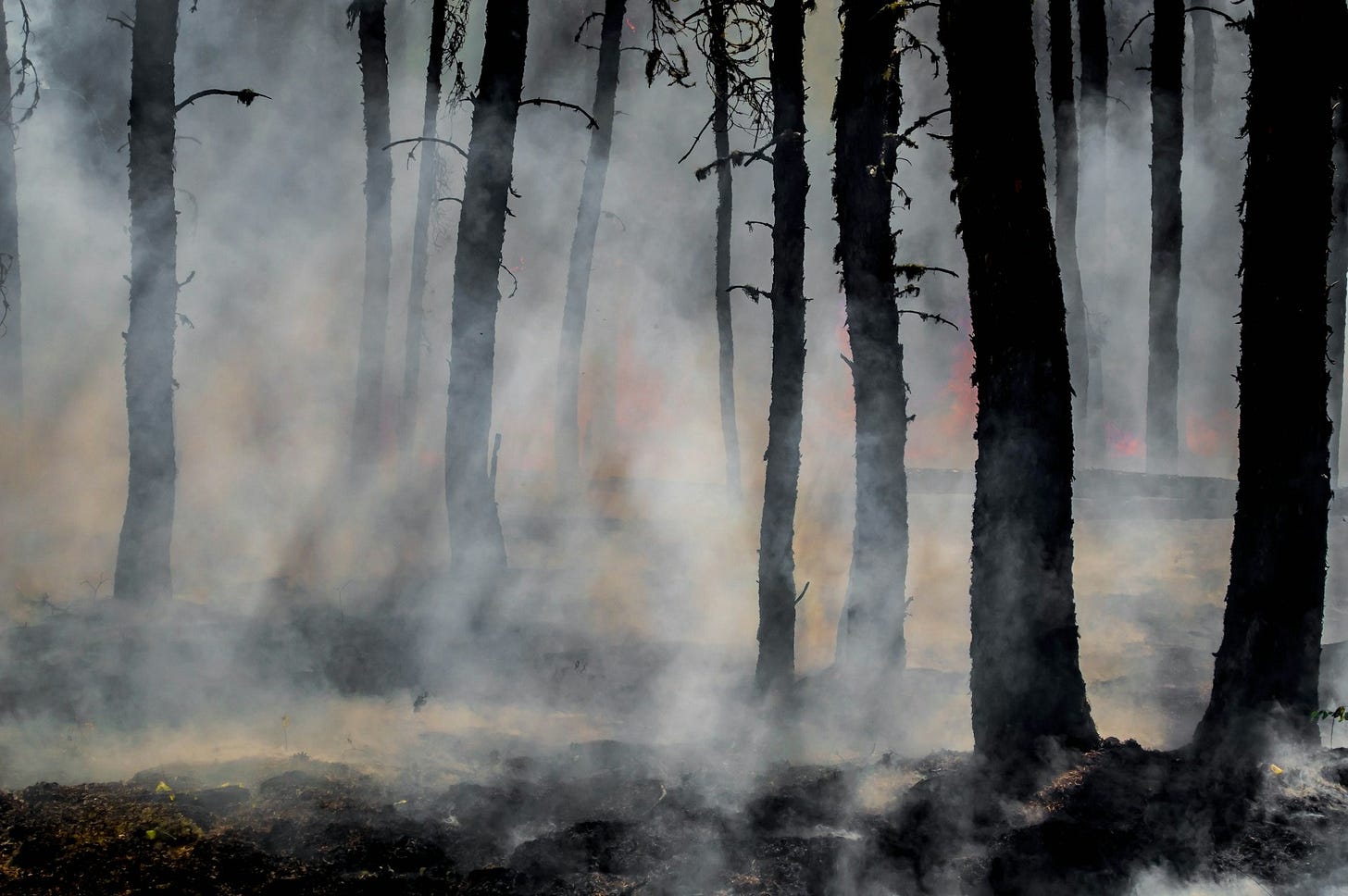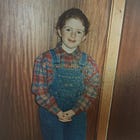Life after Trauma: The Backstory
Rebuilding your life after sexual trauma is never easy. No-one should have to do that alone.
When I was 19, my mother died very suddenly in a car accident. Soon after, a friend told me that I was living her nightmare, a phrase that has haunted me since. She didn’t know I’d been sexually abused as a child, that I’d soon begin a decade of harmful work, or that, in that moment, I was teetering on the edge of suicidal ideation. She didn’t know how much I was struggling to stay alive, upright and moving forward. If she couldn’t handle my grief, I knew she wouldn’t be able to handle the rest of it. That interaction, and hundreds of others, prompted me to tunnel deeper inside myself. I retreated from the world and lived through many years of intense loneliness and isolation.
I rarely state these facts so plainly. Usually, I want to soften the experience for my readers. I lead by saying how much I’ve recovered, how happy I am. That’s true, but my hesitancy to foreground the trauma says something about how we talk about the worst things that have happened to us.
Serious trauma changes you. The person you were before the traumatic event is gone, and you have to remake yourself in the aftermath. In my experience, the immediate impact of sexual violence feels like standing in a hollowed out forest after a devastating fire. The earth is scorched. All life is extinguished. Only a barren, blackness remains.

Not many people know that scorched land is remarkably fertile. Wood ash contains calcium, potassium, and magnesium which makes it a formidable fertiliser. Other nutrients contained in ash neutralise acidic soils and support new growth. Naturally occurring forest fires are nature’s way of reinventing itself. On that fertile ground, I grew a new life. It was slow and laborious but I remade myself in the shadow of my losses.
My version of recovery looks like a changed relationship with food, a different career and a strong creative practice. During my worst years, I wrote everyday. I don’t think I would have survived without it. I developed a new relationship with my flawed, fragile body and found ways to feel strong through movement and exercise. I started volunteering. I came out as gay. I stopped drinking. I read voraciously, determined to understand how my traumas had shaped my life. I learned about post-traumatic growth, and the history of sexual violence. I learned how to rebuild a sense of safety in my body. I learned to rest (much more difficult than it sounds), and to be more self-compassionate (also quite difficult).
I still manage a chronic mental health condition. My symptoms are a fraction of what they once were, but they are still present in my life. I still get triggered, and have to be proactive about keeping myself well. Sometimes, the weight of everything I’ve been through makes me feel deeply sad. But more often, I’m thrilled to be alive and capable of living a full, messy, complicated life.
Life after Trauma is the community and resource I wish I’d had when I was in the depths of my suffering. Back then, I was hungry for stories about how other survivors had rebuilt their lives. More than anything, I needed to know that the things I’d been through were survivable. I needed to know if it was possible to heal. Recovery was the hardest thing I’ve ever done. It’s probably the hardest thing I’ll ever do. But I have built a life that far exceeds my wildest dreams. That’s not to say that I live in a mansion and have nothing to worry about. My life is profoundly normal: full of work and friendship and caregiving and trying to squeeze some exercise into jam-packed days at my desk. But this life, this way of being in the world, felt impossible to my younger self. So I made Life after Trauma for her and for everyone who doubts that a life after trauma is possible.
Life after Trauma exists to amplify survivors’ voices1. No matter what challenges our society is facing, the people most closely impacted by it are often best placed to offer solutions. As political systems swing to the right and wars rage, we need to find new ways to live amidst deep uncertainty. We need to learn better ways to process our grief, pain and trauma. We will need those skills as the climate crisis intensifies and we’re forced to endure extreme human suffering on this planet.
Survivors are some of our best teachers. We’ve been through circumstances and pain that most people can’t imagine, and we have found a way to keep going. Survivors deserve our admiration and support, not our pity.
When something awful happens, most people look away. Life after Trauma is about going toward the scary thing to see what’s on the other side. I don't have many answers, but I’m eager to dwell amidst the questions.
I hope you’ll join us!
One last thing: In this space, you’ll find a lot about me and my story, but I’d love to get properly acquainted with you. What brings you to this space, and what would you like to get from it?
Please introduce yourself in the comments below. Feel free to share your name and pronouns, where in the world you are and what brings you to this community. I’m excited to meet you!
Here are some of my most popular posts:
A note on language: I use the term ‘survivor’ because that feels true to my experience. I was a victim of a heinous crime, but I grew beyond that identity. The term ‘survivor’ doesn’t resonate with everyone. Many people who’ve experienced sexual violence feel that it’s either too lofty or that it diminishes the seriousness of the crime their body endured. On Life after Trauma, I want to use language that feels right for each individual person. In interviews and podcasts, I use the interviewee’s preferred language. When I talk about my own experience, I’ll use language that feels right for me.










I loved reading this post, Clare. So much of what you wrote resonated with me. Thank you for sharing!
This was really, really fantastic. I have to confess to barking out a laugh of recognition at, in your response to everyone being sad about the pandemic, "'Welcome to the knowledge that your entire life can be wiped out in an instant', I thought, rather ungenerously. "
But what you said straight after was even more powerful. "As political systems swing to the right and wars rage, we need to find new ways to live amidst deep uncertainty." It articulated why I find your writing so helpful right now. Thank you xo